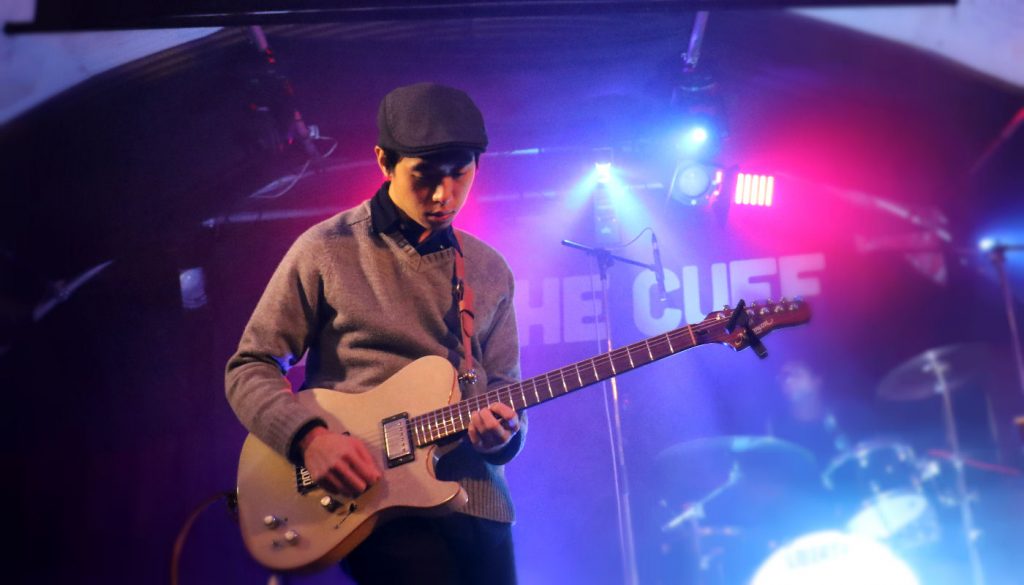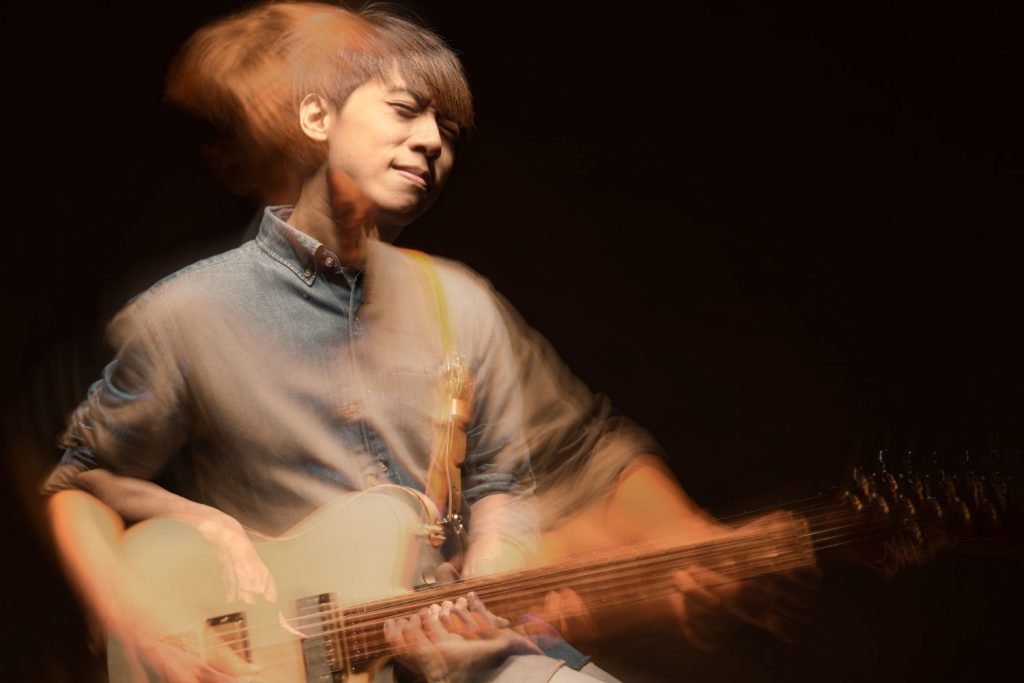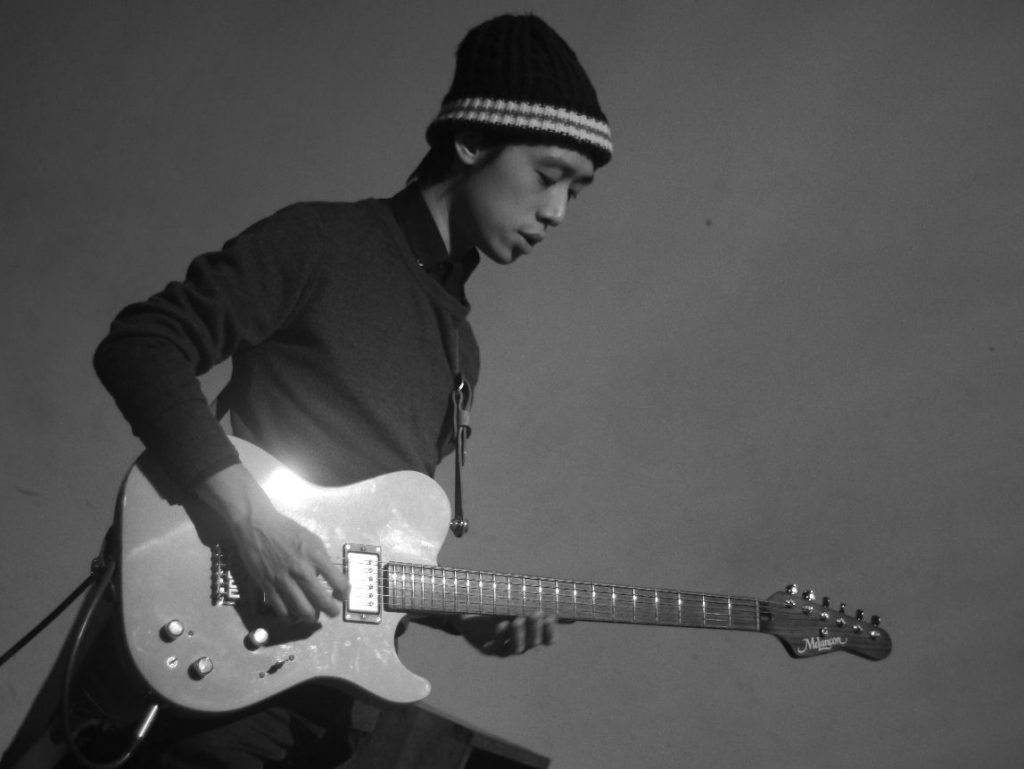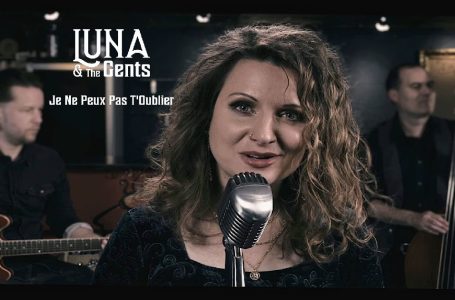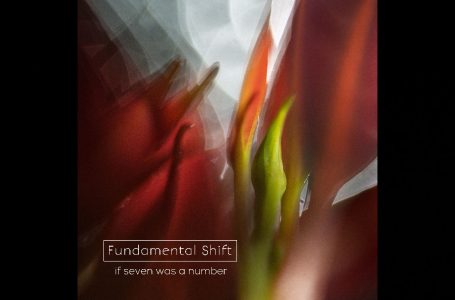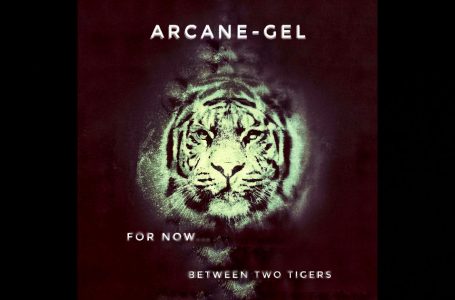Tjoe Man Cheung
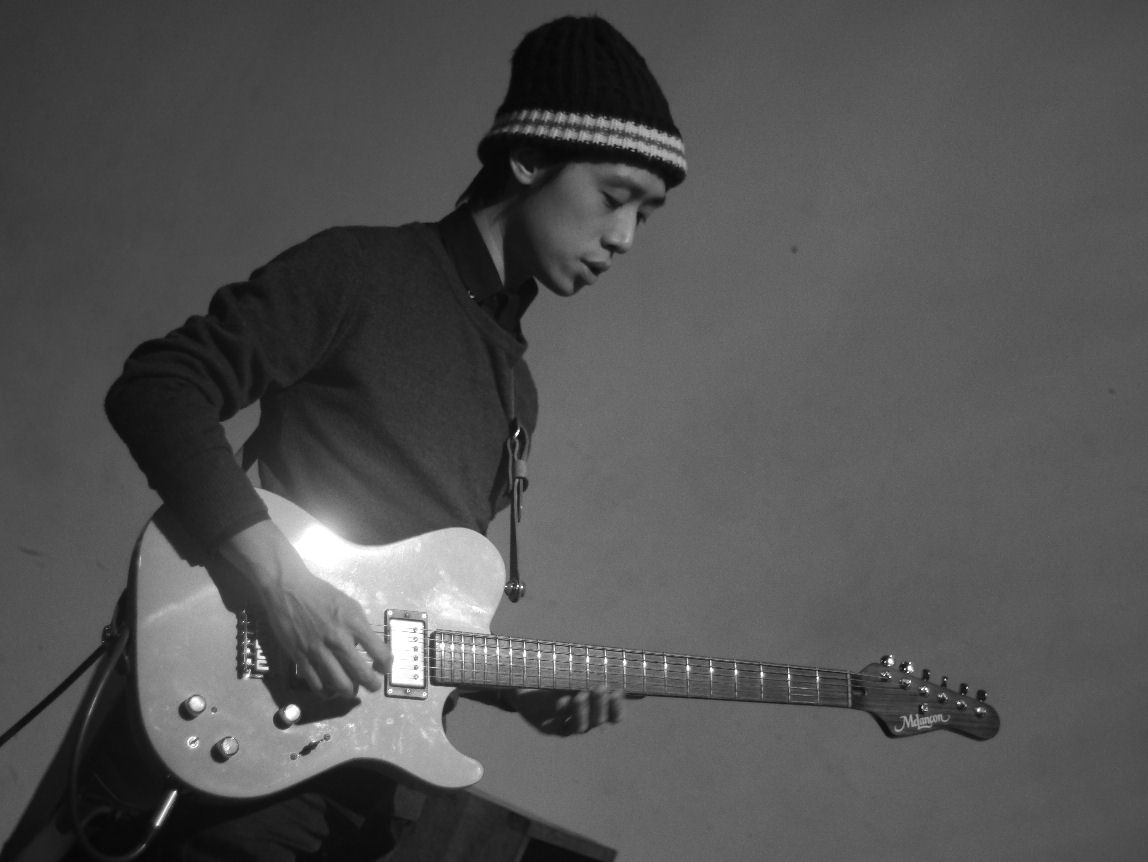
Interview with Tjoe Man Cheung!
SBS: Hello and welcome to our pages Tjoe! I’ve spent my past couple days looking into your music and what you’ve been up to…and MAN you have definitely been busy for the past while with all kinds of projects on the go. Before we get into all that though…I’m curious about what led you to jazz-music to begin with? After everything I’ve seen & heard so far – you’ve got tremendous talent on guitar and for music in general…so what was it about Jazz music specifically that led you to want to make it yourself?
Tjoe: Hello Jer! I started playing guitar after my secondary school around the time I was 19, before that I was just a casual listener to music & whatever sounded good to me… so basically I do not have any music background before I started learning guitar. I remember my friend lent me a guitar and I was carrying it lefty-position and he corrected me. I had a good tutor who led me into music, introduced me to most of the styles like, blues, classic-rock, funk, folk, pop etc. He is a jazz lover and taught me jazz. At the beginning of learning, I’ve practiced a lot about arpeggio, chords sharp, position and swing – and at that time jazz to me was interesting from its technique & chord changes. I really love to practice in general, so that made me dig deeper and that’s how I started with jazz music – and the most attractive part of jazz music is beyond the foundation of itself. Best way I can describe it is like when a kid asks an adult “why,” and the answer from the adult is, “you will know when you get there.” And when you get there, you start your own path.
SBS: A lot of people out there say they ‘don’t get Jazz’ for one reason or another. What do you believe defines what great Jazz music is all about? What separates the good from the great?
Tjoe: Different styles of music have their own beauty, it depends how you look at them. To me, great jazz music is about creativity and vibes; good ones deliver the music, great one will deliver music and vibes and the value of jazz is in the improvisation & composition from artists themselves. Let’s say if you’re listening to some jazz record, you can tell who’s on the record, especially those outstanding ones like Miles, Freddie Hubbard, Herbie, Art Tatum, Wes Montgomery, Thelonious Monk… just to name a few. Here’s some records that I really like:
Louis Armstrong – Satchmo Serenades 1952
Michel Petrucciani – Power Of Three 1987 – It’s a great live version recording with Jim Hall and Wayne Shorter
Joe Henderson – Lush Life 1992 tribute Billy Strayhorn
Kamasi Washington – The Epic 2015
SBS: I just finished watching your video for “A Day In The Life Of Tjoe” – which was totally different than what I thought it was going to be and ended up being a really extraordinary adventure to watch happen, rather than just another music-video, which is what I was expecting. I like how the video really highlights a couple major things…one being what musicians go through in bizarre circumstances, but also the genuine sense of community in being a musician in the London scene. Tell us a bit about that day…was that the first time you’d encountered that scenario with needing a fill-in player with so little time before the gig started? I never felt like I saw you panicking at all…it was like you knew the music-community would be there for you when it all came down to showtime – was that the case or were you freaking out on the inside? You could have just rocked a solo-set if necessary, couldn’t you?
Tjoe: About this video, I have to thank my friend Kohei Yamaguchi. He is a filmmaker from Japan that I met in London, he told me he is interested in my music and would like to film a video of my live gig and we sorted out a date for it. After that i told him I have got an interview from GW Jazz at Radar Radio, so he decided to film from there and that’s the story of this video. I am lucky enough to have a number of players and friends which I used to play together with, so I kind of know how it works. The drummer who played that night, Alessandro Lombardo, is recording with me on my 2nd EP FLOW LDN – so he knows my songs quite well and with a quick sound check before the gig starts, we’re all set. The most worrysome part is my trolley is broken because the amp is very heavy, plus I am carrying guitar – so there’s about 23kgs on me walking to the club…
SBS: I know your time spent in London has meant a great deal to you…what makes the place such a special one for musicians and what are your own favorite aspects of the London music-scene?
Tjoe: London is very interesting to me. There are a lot of musicians from everywhere in the world and most of the reason they want to live there is to develop their craft. Also of course, reasons like The Beatles, Coldplay, The Police, Led Zeppelin, Radiohead, Jeff Beck…to name a few – they all come from the UK…and London is the capital. For this reason, I guess the move to London was a good decision for me to develop my own music and inspiration. The best part about London to me is there are a lot of jam sessions around in town with different styles from top-40 cover pop-tunes to straight-ahead jazz Bebop. It’s happening every night, 7 days a week, and you can meet bunch of players though the jams and play together.
SBS: Now…Tjoe…of course you practice & rehearse and all that…but with the free-spirited and expressive nature of Jazz music always allowing for musicians to really be in the moment – I’m actually kind of curious as to how much of what you practice would end up being what you’d actually play onstage, know what I mean? Do you go into a live-performance note-for-note somehow or do the songs become more organic and change when you play live? Whichever method you’ve chosen…what are the benefits to your music as a result of that choice?
Tjoe: I really like to practice. Usually I have a warm-up before I get in to practice and most of the time the content of my practice is to transcribe music…mostly standard jazz or something I’ve been listening to recently and would be able to play alone with the record. So, that’s my process…and basically like that I have spent my time focused-on playing them precisely. I think I’ve got the best results in playing so far with this routine. Warm-up is very important and affects my playing, which I learnt from a trumpet player…if I’m busy I will do the warm-up part longer, on stage is a totally different vibe. I am more relaxed at that spot and focus more on creative side or how to make it sound good with the band and the music.
SBS: You’ve recently gone back home to Hong Kong…what would you say are the main differences in how the music community supports itself and operates in these locations? Aside from the fact that one is of course, your home…aside from language…what are the similarities, differences, advantages and disadvantages of these two music-scenes you now know best?
Tjoe: The main difference is the size of the city, London is very huge compared to Hong Kong. Most of the time you can only do one thing in a day and in Hong Kong you can simply go different places in a day, this is one of the good things about Hong Kong. The scene of Hong Kong is much smaller than London that by comparison, you would see same face in jam sessions most of the time. Also less venues in town that you can perform your original music. Both places are pretty well connected around other countries, so there are no issues with gigging abroad either.
SBS: Tell us about NTBM…this is quite the concept and I think people would completely connect to this idea you’ve got…let us in on the details!
Tjoe: I released 2 EPs, one in 2014 another one in 2016 called FLOW and FLOW LDN, which are under my name and the themes are about my daily life with compositions that are guitar-based melodies as a main in a quartet. During the day living in London, me and my partner travel around Europe, and she has started a website about a different city guide named as NTBM (not to be missed) – and I found this name is cool as a band-name too! So I started this project with that name – it will be a 5-piece band, rhythm section plus tenor sax and trumpet. Compare to my last 2 EPs which I included more on guitar as the main instrument in the music, this one has horns leading and more improvisation elements than previous one.
SBS: With new players onstage each time Not-To-Be-Missed plays, as cool as that might be for us out there in the audience, that’s still got to add an element of potential ‘danger’ onstage doesn’t it? Do you worry about things like miscommunication, or an altogether breakdown when out there playing live – or if that happens does it all become part of the show somehow? What’s the biggest challenge in playing with new players night after night and what makes it also rewarding to take this on as an artist?
Tjoe: Most of the players that I played together with all met in jam sessions around London. Some of them played with me quite often on different jam-nights – we’re also friends too besides just hanging out at jams. I know how they deal with music & songs, and we’ve built some kind of trust and musical connection. It’s like you work with someone a lot and you can kind of sense what they are going to do, or how they wanna do something. Also, the more different people you play with, the better understanding you get – and it’s good for me to have this communication skill as a leader in a band so that when there’s a gig the only thing left is to study the song and we are ready to play. The most exciting part to me is that they are all excellent musicians and have great passion for playing music, always surprise and inspire me – the biggest challenge for me is I have to play better to not suck!
SBS: You’re also planning an album with NTBM…can we get a few details from you on that? In comparison to the music you’ve released already as a solo-artist, how is this similar/different from what we’ve heard in the past from you Tjoe? Will the music of NTBM continue to show how you’ve also personally grown as an artist while making music within a group? How so?
Tjoe: Yes, right now this is the most exciting thing that I thinking about all the time. As mentioned, I had 2 EPs under my name before…so that’s the reason I’m doing an album with others. Also, it will be different vibe and direction; on composition i will still take-on the most-part in writing, but other members will be involved in composing too… I’m going to stand back to where I should be in the band for the music content, to make sure it sounds good as a band and also has enough edge to bring out the character of each player. So far I’m happy about it!
SBS: Jazz is certainly one of the oldest genres and has survived years and years of being under the surface of the mainstream. Always popular enough to retain a large fan-base of people that love it – but let’s face it Tjoe…when it comes to pop-culture, people have to dig a lot harder to find music like Jazz than say a Pop or Rock song. Perhaps that’s just my perception from here in Canada, but I suspect highly that it isn’t…I’m sure Jazz floats beneath the surface in almost every area on earth. Well…actually, I don’t know that for a fact because I barely ever travel beyond my own backyard – so you tell us Tjoe…does Jazz have a harder time getting the recognition it deserves compared to other genres? What does it take for a Jazz artist or band to break into the mainstream – and is that something you’d even want for your own music or would that potentially harm the artistic aspects of what you do?
Tjoe: Yes and no. What people call jazz today, was timeless, popular music from back in the day. A lot of players playing them, copping their style from Miles etc. – it’s social music…a bunch of musicians hanging around playing together. Some of them living in the same apartment! As a musician myself, jazz is not only the music style I’ve chosen – it’s life and culture. There are a lot of movies that talk about jazz…the music might not be as big of a part of the pop-scene nowadays…but jazz is life & a musician’s story itself has its own potential audience. But who knows…lately jazz is getting trendy again…more and more artists coming up like Robert Glasper, José James, Esperanza Spalding, Kamasi Washington, Snarky Puppy etc….
Music-wise I am pretty open to anything. If there’s any chance of doing anything related to music, I’m up for that – and if people are willing pay you to do certain things they looking for in music, that means you have to have something specific and valuable to them. There’s some jazz cats featuring pop artists back in the day, like Miles Davis, Herbie Hancock, Michael Brecker, and David Bowie’s album Blackstar.
SBS: For a Jazz musician, I’d imagine there’s a huge difference between playing the songs live and recording them officially in a studio. When you’re listening to your own music recorded…what is it that you’re personally listening for? What does the song you’ve played HAVE to have in order for it to be a song that ends up on a record…or in the case of writing in general, what does a song HAVE to have in order for you to want to play it live? What are the magic elements you’re looking for?
Tjoe: With studio recording my mind will switch to the production-side…that music in the studio has gotta be clear & decent because once you’re done, that music stays permanently in CD & you can keep it to listen back to many times. Usually when I choose which track to put in, I mostly will listen to the whole picture of the music…sometimes I’ve got a killer solo with one take, but the vibe wasn’t right and lots of minor little things that don’t inspire me with confidence when I listen to it.
So far I don’t have any songs that end up only available on record, but some of them do sounds better on recordings than they do live and some of them will sound better live than on the record. I only have a lead sheet and some simple notes written on what i want on the chart and I let the musicians feel what can they do with it, and as a result we get more space in the music for interaction. When playing live – let your bandmate do their thing, I think that is the magic.
SBS: You have officially reached the SBS ‘Open-floor’ Tjoe! Thank-you once again for putting up with all these rambling questions and taking the time to talk to us about your music! Looking forward to hearing what Not-To-Be-Missed comes out with and wish you all the best in 2017 – take this next space to talk about anything else we didn’t cover in the interview that you would have wanted to talk about, or feel free to send out some love to the people & fans that support you…it’s all up to you, say whatever you like my friend. Thanks again Tjoe!
Tjoe: It’s my pleasure! I’m so grateful for the wonderful people around me on my music journey. If you are interested in finding out more about my music, make sure to also check out these serious players who are involved in NTBM project: Bodo Maier (trumpet), Marco Marotta (tenor sax), Alex Ho (piano), Florian Haas Schneider (drums), Ashley de Neef (bass). For upcoming gigs and updates please check out my website at http://www.fb.me/tjoemusic
We’ve got questions, you’ve got answers – be our next interview guest at sleepingbagstudios by clicking here!


